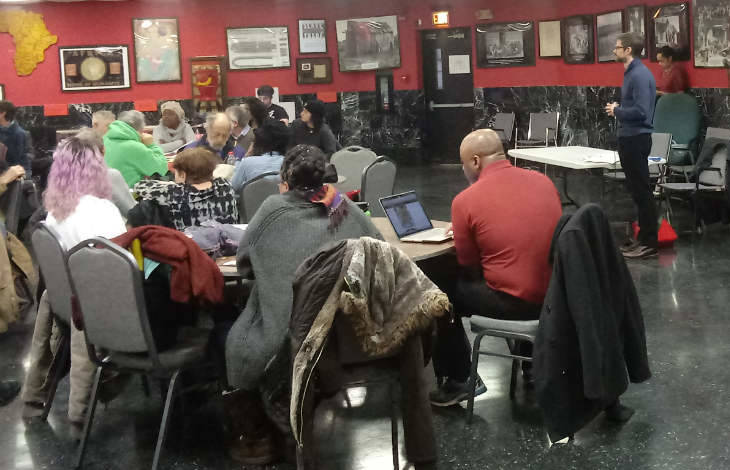On Jan. 12, in the basement of Union Temple Baptist Church in Southeast D.C, Andrew Trueblood, acting director of the District’s Office of Planning (OP), spoke to a room full of community activists about the city’s main planning document, the Comprehensive Plan. Trueblood told the attendees that the OP needs to do more public engagement around the Plan.
Around 70 to 80 people showed up and spoke at the meeting, according to an estimate by the non-profit community action group Empower DC, which sponsored the meeting. Trueblood wants to hear from not just affluent people, but low-income and homeless people as well, his office said in a response to an e-mailed question. He wants to talk, really, to anybody interested in planning.
“That’s what’s really meaningful to me,” he told the crowd at Union Temple. “I hope this can be an ongoing conversation and dialogue. I hope trust can be carried out and developed.
“We need to start planning for people first. Then the people will come.”
“We have to think years into the future,” he said. “What is our positive vision for the city? What are the tools we can use to get there?”
Trueblood has been in the job less than three months, so he and his staff are still working to formulate a strategy for implementing his vision, he told Street Sense Media. Trueblood replaced Eric Shaw as planning director.
The Bowser administration and OP were inundated with 3,000 community amendments for this revision of the Comprehensive Plan. During the prior go-around, in 2006, they received a mere 200.
A big indicator of interest Empower D.C. Executive Director Parisa Norouzi told the crowd, was a D.C. City Council meeting in March, 2018, during which so many citizens signed up to testify that the hearing lasted 13 hours and did not end until the early morning of the next day. It demonstrated, she said, just how much citizens, whether poor or affluent, want to be heard.
There will definitely be more public engagement before the edited and revised OP version of the Comprehensive Plan goes back to the Council, Trueblood emphasized. He said another round will likely happen in May or June.
Conventional tools of the Comprehensive Plan that have been used by planners previously, such as Small Area Plans (which specify details of particular areas of the map such as shopping centers and office parks that use land intensively) and Future Land Use Maps (which aid in building new structures and show future plans for more intensively developed areas) will be amended, Trueblood said.
He told the crowd that he wants to use data analytics in the planning work to visualize and analyze housing that already exists to sensibly determine what more needs to be built.
Eric Sheptock and Chris Otten, both community activists and affordable housing experts, asked Trueblood to assure them he would consider the District government’s promise that a share of new housing plans would save a portion of what they build for affordable low-income housing for the segment of the community that needs it.
Activist Mary Bolton wished the Office of Planning would break housing statistics down into manageable pieces so the public can understand with the information more readily. Trueblood responded that he’d like to systematize affordable housing data so that people can work with it.
Trueblood said he’d like to start a housing matrix that incorporates other planning analyses, which would be part of a positive future view of the city.
Norouz remarked that she’d like to see the Bowser administration have more small meetings for the public about various parts of the Comprehensive Plan, rather than try to deal with the entire document, which numbers 1,000 pages.








